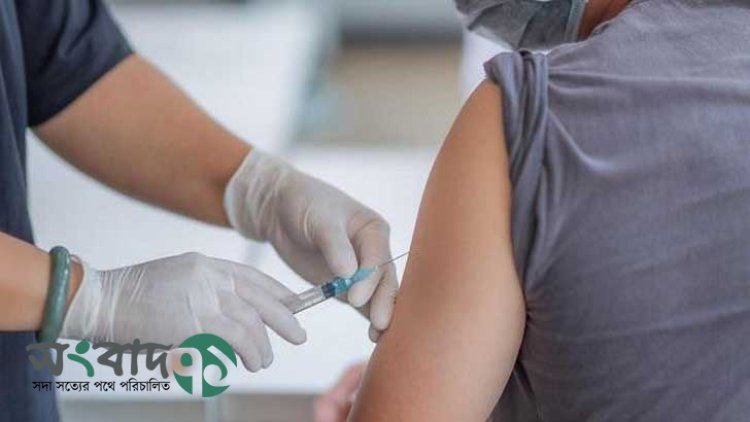HPV immunization program for girls may be delayed
Human papilloma virus (HPV) is a virus that is responsible for cervical cancer. HPV vaccination was provided. The pilot project was completed by giving two doses of vaccine in the last six months, but the HPV vaccination program has never been expanded.

After a long hiatus, the Global Alliance for Vaccines and Immunizations approved Bangladesh for HPV vaccination on March 12 last year.
Today, 16 non-governmental organizations working on cancer, women's health and women's rights will observe Cervical Cancer Awareness Day on Saturday, the second Saturday in January every year since 2016. Has been observed. The theme this time around is "Give your teenage daughter an HPV vaccine". It is learned that the organizations will hold a discussion meeting and walk from the National Press Club to the Magbazar junction today and distribute leaflets.
EPI's program manager Maula Box Chowdhury said that HPV vaccination was supposed to be given to children between the ages of 10 and 14 in the country from last July based on the availability of vaccines. He said that whether a woman is at risk of cervical cancer can be identified 10 years ago through VIA (Visual Inspection of the Cervix with Acetic Acid) test.
Cervical cancer in our country: Cervical cancer ranks fifth among all types of cancer in the country in terms of incidence, according to a 2020 report by Globokan of the World Health Organization's International Organization for Cancer Research (IARC). Bangladesh ranks seventh in terms of cancer deaths. The most common disease women suffer from after breast cancer is cervical cancer.
According to cancer experts, early marriages, having more children, more frequent pregnancies, not maintaining a sterile environment during menstruation, reduced immunity to malnourished bodies, and having sex with multiple partners in men and women increase the risk of developing cervical cancer.
Non-governmental organizations should be used: HPV6, HPV11, HPV16 and HPV18 are at risk for cervical cancer. HPV16 and HPV16 are the most risky. The pilot project involved the GlaxoSmithKline (GSK) "Cervarix" HPV vaccine. It works to prevent bivalent or HPV16 and HPV16. JSK has withdrawn business from the country. Privately, Health Care used to import HPV vaccine called 'Gardesil', which acts as a tetravalent or antidote in all four cases. It is also rare now, the price is too high. Cervix vaccine will be given again through a different organization.
Mr. Md. Habibullah Talukder, Chief Coordinator, March for Mothers and Associate Professor, National Cancer Research Institute and Hospital, said that there is a need to create awareness in the country before the government officially launches HPV vaccination. Habibullah added that the World Health Organization (WHO) has said that by 2030, 90 percent of girls under the age of 15 will be vaccinated, aged 35 and 45, respectively. He said that at least twice the age will be screened and 90 percent will be brought under treatment. Bangladesh is far behind that goal. No more than 6 to 8 percent screening in 15 years. He said that the way the screening has become so centralized, the target will not be met even in 100 years.



















